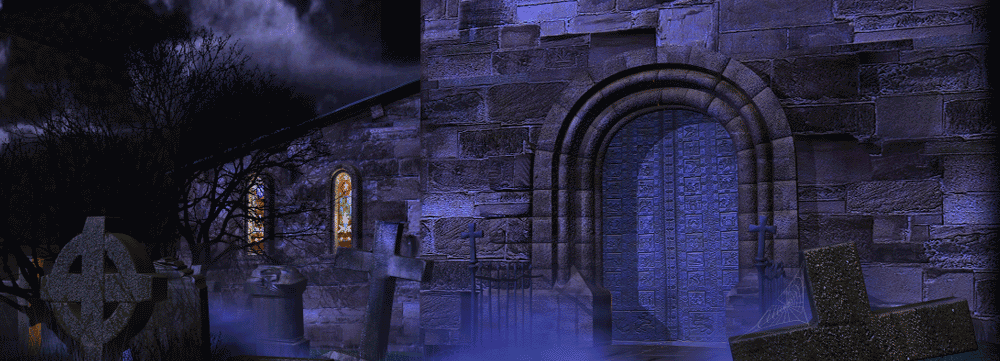COPYRIGHT 1999 Newsweek, Inc. All rights reserved. Any reuse, distribution or alteration without express written permission of Newsweek is prohibited. For permission: www.newsweek.com
The inside story of one young woman’s terrifying ordeal at the hands of a cyberstalker
Randi barber had never heard anything as frightening as the messages on her answering machine. The 28-year-old North Hollywood, Calif., woman started getting the calls in early 1998: dirty solicitations from several different men. But one April day, Barber learned just how scared she could be when a stranger knocked on her apartment door. He left after she hid silently for a few minutes, but phoned her apartment later. “What do you want?” she pleaded. “Why are you doing this?” Puzzled by the hysterical note in her voice, the man explained that he was responding to the sexy ad she had placed on the Internet.
“What ad? What did it say?” Barber asked. “Am I in big trouble?”
“Let me put it to you this way,” the caller said. “You could get raped.”
Barber didn’t own a computer and had never been on the Web, but it didn’t take her long to figure out that she was at the center of a nightmarish criminal plot. Over the next few months, Barber would discover that a stalker had assumed her identity in cyberspace and was posting ads on the Internet seeking men to fulfill kinky sexual desires. “I’m into the rape fantasy and gang-bang fantasy, too,” he wrote in her name, one of many lewd postings on sites including Hotmail and Nightmail under such log-ons as “playfulkitty4U” and “kinkygal30.” But the sadomasochistic content of the messages wasn’t the most disturbing part. The mysterious stalker was giving out Barber’s address, directions to her home, details of her social plans and even advice on how to short-circuit her alarm system.
He was also unwittingly leaving encrypted clues. Last November, after an investigation by the FBI, the Los Angeles district attorney and the L.A. County Sheriff’s Department, police arrested an acquaintance of Barber’s named Gary Dellapenta under a California law that criminalizes stalking and harassment on the Internet; the 50-year-old security guard pleaded not guilty to that charge, computer fraud and solicitation for rape at a preliminary hearing in January, and his arraignment is scheduled for this week. Even veteran cops who have seen cybercrime explode in recent years are stunned by this case. “The Internet is presenting us with criminal-justice issues we haven’t seen before,” says one law-enforcement official. “This person was sitting in his house before a computer screen moving would-be rapists around like chess pieces. It’s one of the scariest things you can imagine.”
Randi Barber can attest to that. A religious woman who grew up the only child of doting parents in the placid northern suburbs of Los Angeles County, Barber was unprepared for the wrenching toll the stalking has taken on her life. “You don’t realize how valuable your privacy is till someone takes it away,” she told Newsweek in an exclusive interview. “I feel dirty-even though I haven’t even been touched. At work, I felt embarrassed to look people in the face. You can’t believe what’s happening to you.” Before Dellapenta was taken into custody, Barber sometimes left her job at an Encino real-estate firm and slept in her car rather than return to her empty apartment. And even with her alleged stalker in jail, she is still so depressed that she feels physically sick.
But while Barber describes herself as “a skittish person,” the investigators who eventually worked with her say a better description is “gutsy.” Within days of receiving the first batch of ominous phone calls, she went to the police and filed a report. And when they told her they couldn’t help, she doggedly started working the case herself. “I couldn’t just sit there and let this happen to me,” Barber remembers. “I had to know who he was.” She didn’t change her phone number, and she didn’t panic. Barber kept the taped phone messages-as awful as they were-and called each creep back to explain that she was a victim, not a vixen. Two men cooperated with her request for help in tracing the culprit, and one sent her hard copies of some of his X- rated e-mails. In the meantime, Tom Barber, Randi’s father, got online. “I knew I had to some way or another identify him and stop him,” he says. “So I became a computer expert. I began to spend hours on the Internet.” Within a week, he found the ads and was corresponding with “playfulkitty4U” and “kinkygal30.”
By August, Randi and her father had plenty of evidence-and a prime suspect in mind. Barber hadn’t forgotten the unwanted advances she’d parried from Gary Dellapenta during 1996. She had met the secu- rity guard through a friend, but the twice-divorced Dellapenta (who lives in a modest stucco bungalow with his 80-year-old mother) made her uncomfortable. When he started making overtures, she rebuffed him. Undeterred, he sent flowers and a small gift, continued to call and even joined her church. After church elders intervened, the unwanted adv ances ceased. But months later the phone calls began.
The authorities started working in earnest on Barber’s case once Randi and her father handed over the e-mails-and Dellapenta’s name. At that point, says Tom Barber, “the mouse became the cat.” FBI agent Mark Wilson and D.A. investigator Brian Hale traced the e-mails from the Web sites at which they were posted to the servers used to access the sites. Search warrants compelled the Internet companies to identify the user. All the paths led police back to Dellapenta. “When you go on the Internet, you leave fingerprints-we can tell exactly where you’ve been,” says sheriff’s investigator Mike Gurzi, who would eventually verify that all the e-mails originated from Dellapenta’s computer after studying his hard drive. The alleged stalker’s M.O. was tellingly simple: police say he opened up a number of free Internet e-mail accounts pretending to be Barber, posted the crude ads under a salacious log-on name and started e-mailing the men who responded. Dellapenta was arrested in November; his attorney is not commenting publicly on the case.
Even now, Barber knows very little about her alleged cyberstalker. Dellapenta’s court records show he and his second wife filed for divorce in January 1996-just about the time Randi’s harassment began- and has no prior criminal record. What he did seem to have was an extraordinary amount of anger. According to testimony given by the FBI’s Wilson at the preliminary hearing, Dellapenta admitted that he had “inner rage” directed at Barber, and that he was seeing a psychologist because he “could not stop himself” from sending smutty e- mail. “This is not over when it’s over,” says Barber, her dark brown eyes filled with fear. The illusion of anonymity on the Internet has spawned a new generation of criminals who do things behind the cover of a computer screen they might otherwise never even consider. And as Randi Barber knows, the consequences can be devastating.
With Sarah Van Boven in New York
Copyright 1999 Newsweek Inc. All rights reserved. Any reuse, distribution or alteration without express written permission of Newsweek is prohibited. http://www.newsweek.com







